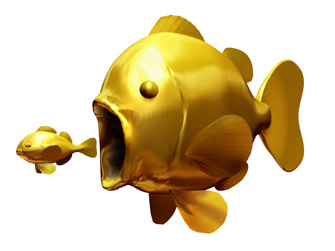 The allure of “The Prince” is in its advocacy of cold, calculated objectivity and pragmatism to achieve power. These ancient Best Practices serve as convenient, independent validations to cloak moral responsibility.
The allure of “The Prince” is in its advocacy of cold, calculated objectivity and pragmatism to achieve power. These ancient Best Practices serve as convenient, independent validations to cloak moral responsibility.
Yet, even though many corporate raiders may blame Machiavelli for their actions, pragmatically seeking to shed their own culpability, they fail to factor in such inconveniences as guilt, remorse, and other long-term consequences of moral ineptitude and failure.
Evaluating “The Prince” through the lens of the psychologist reveals an almost textbook blueprint for the inner workings of the pathological mind. At the heart “The Prince” is a narcissistic justification for the accumulation and retention of power, at any cost, for the individual is almost pre-ordained to ensure the stability of the state.
Based on tactics, which are often deceitful and harmful to the masses, Machiavelli espouses an almost institutionalized policy for repressing empathy. Empathy is one of the most powerful tools in the human repertoire which promotes communication, closeness, and safety. Empathy creates well-being within and between people. It modulates loneliness. Many people who work on the Street have trampled on their own humanity in an effort to become wealthy. They have engaged in betrayal and deception; they have practiced the doctrine that the means justifies the ends. And as such their Gyroscope has faltered, and they have no safe haven.
Consider “What Would Machiavelli Do? The Ends Justify the Meanness” by author Stanley Bing, a columnist for Fortune magazine.[2] Bing satirizes and interprets “The Prince” as poking fun at the sadistic plodding and ruthless plotting of a corporate culture that eats its own. Bing masterfully layers on the sarcasm and wit dissecting elements of the “The Prince,” yet at the same time sheds light on the narcissistic inconsistencies that erode Machiavellian conceits, such as:
“To create an entire belief system built on this incredibly thin platform [believing you having a destiny], you’re going to need to start deluding yourself. A lot of guys are way ahead of you, so you’d better hurry up.”
This is the epitome of the institutionalization of the advocacy of narcissism as a vehicle for success.
Conversely, the Wall Street Psychologist’s Gyroscope promotes the importance of weaving moral fiber around best business practices.
**********************************************************
YEAR END NOTE TO OUR SUBSCRIBERS AND READERS:
Thank you for your interest and support. You are deeply appreciated!
The Wall Street Psychologist is now being syndicated globally by Newstex.
Next year we are planning some exciting innovations.
We hope to synch up with “Psychology Today” and the Harvard Blog Roll.
Most importantly “The Wall Street Psychologist’s Gyroscope: Survival Tactics for Financial Professionals in a Money-Mad World”, will be published in Q2, 2013!
At last…LOL
Posting will resume on January 2, 2013.
HAPPY HOLIDAYS TO ALL!
Christopher Bayer, Ph.D
______________________________________________________________________________
[2] “What Would Machiavelli Do? The Ends Justify the Meanness,” Stanley Bing, Haper Collins, 7/28/2004